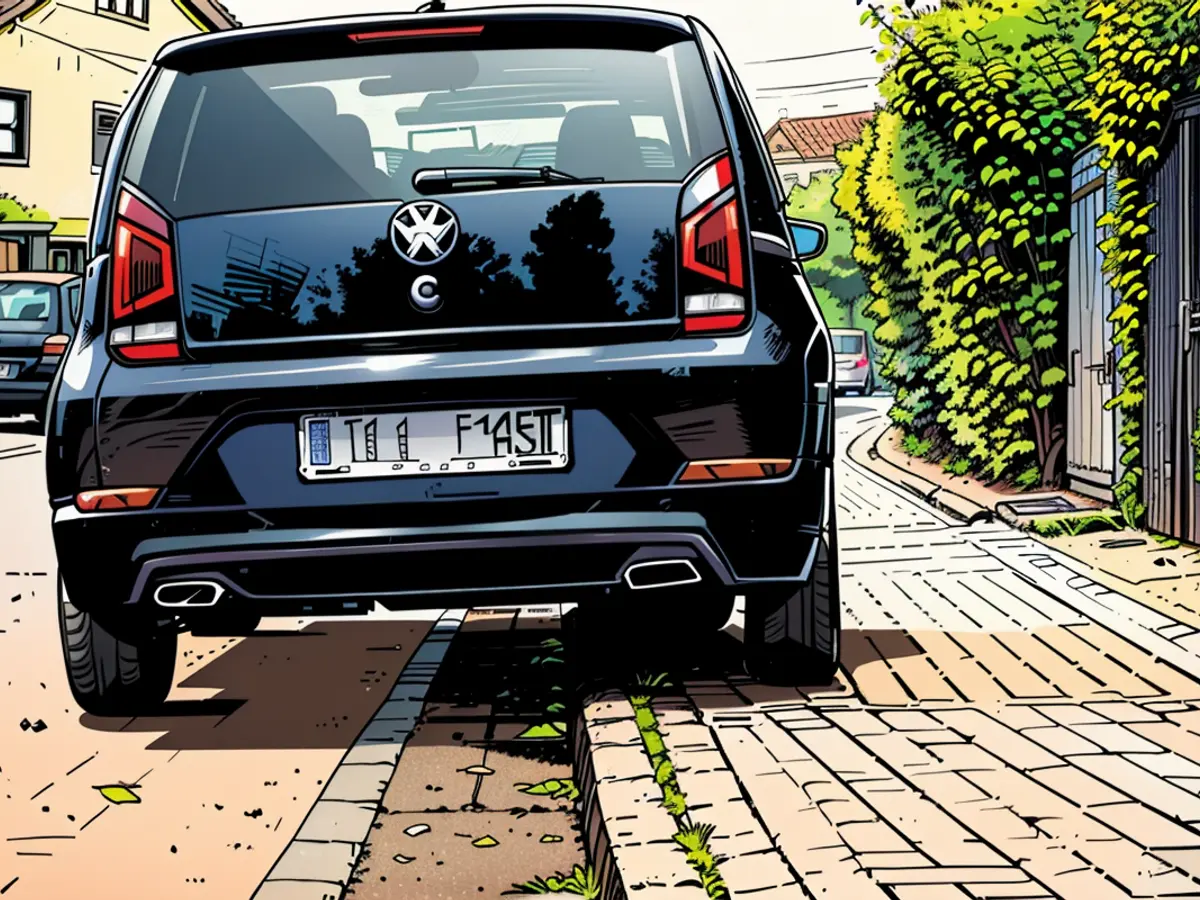Vehicular Movement Restrictions - Court rules on cars parked on sidewalks
The Leipzig Federal Administrative Court is determining whether citizens are allowed to take legal action against cars parked on sidewalks. It is illegal for drivers to park with two wheels on the sidewalk without authorization.
In numerous urban locations, this type of parking is prevalent, and authorities typically disregard it. As per Henning J. Bahr, a specialist attorney for administrative law in Osnabrück, conversing with the German Press Agency, the verdict could have a "signaling effect."
The five plaintiffs are homeowners from Bremen, as one of them confirmed in response to a query. They own houses in streets where drivers often park on the sidewalk. The plaintiffs want the traffic authorities to intervene and take action against this. The opposing party is the City of Bremen. The court has scheduled a solitary hearing date. "I can't predict if the court will render a verdict and announce it on that day," a court spokesperson stated.
In 2021, the Bremen Administrative Court determined that the plaintiffs had the right to demand that the traffic authority take action against these sidewalk parkers. The authority had the discretion to choose which measures it would apply. The Bremen Higher Administrative Court confirmed this in 2022 with a verdict. However, it varied from the lower court's judgment, specifying that the authority has some latitude to choose whether or not to intervene. It can remain entirely inactive but should not be completely idle. The authority must, for instance, justify why it doesn't install one-sided parking prohibition signs, which would necessitate minimum effort.
Bahr claimed, based on his knowledge, that this administrative court ruling is the first to grant residents the ability to defend themselves against parked sidewalks. If the Federal Administrative Court rules in favor of the plaintiffs, citizens could challenge parked sidewalks across Germany. There's also the chance they could pursue legal action against other persistent infractions, like excessive speeding in residential zones. If the court rules against the plaintiffs, the Bremen legal practice will likely be overturned.
The plaintiffs have declared they won't make remarks if their lawsuit fails. If they prevail, they wish to convey their thoughts. The Bremen Mobility Department hasn't provided an estimate of the case before the trial began. The Federal Transport Ministry also refrained from commenting on the issue when asked.
Read also:
- The case in Leipzig's Federal Administrative Court could set a precedent for German residents, as they seek to challenge cars parked on sidewalks, a common issue in urban areas.
- If the Federal Administrative Court rules in favor of the Bremen plaintiffs, residents in Saxony and other German cities like Leipzig might also have the right to challenge such parking violations.
- The German Press Agency reported on the ongoing process at the Federal Administrative Court, highlighting the potential impact of the ruling on car traffic and sidewalk use in Germany.
- The Bremen administrative court ruling, which granted residents the ability to act against parked sidewalks, could influence similar cases at the Federal Administrative Court, particularly in cities with high traffic and side walk congestion.
- The opposing party in this case, the City of Bremen, may argue that the administrative court ruling set a precedent, which could increase the number of 'no parking' signs and impact car traffic in various urban locations.
- If the court rules against the plaintiffs, the Bremen legal practice may remain unchanged, leaving the City of Bremen with fewer obligations regarding parking violations on sidewalks and potential congestion of car traffic.
- The administrative court ruling in Bremen in 2022, which allowed residents to demand action against parked sidewalk cars, has had an impact on other German cities, including Bremen and Leipzig, both dealing with car traffic and sidewalk concerns.
- Residents in other German cities, such as Bremen and Leipzig, may be keenly observing the Federal Administrative Court's ruling, with hopes it will impact car traffic and improve sidewalk safety in their respective neighborhoods.






